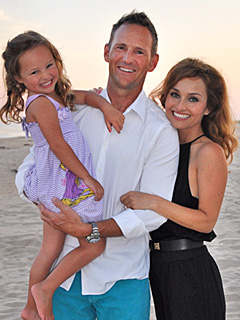CHICAGO (AP) — It happened after Columbine, Virginia Tech, Aurora, Colo., and now Sandy Hook: People figure there surely were signs of impending violence. But experts say predicting who will be the next mass shooter is virtually impossible — partly because as commonplace as these calamities seem, they are relatively rare crimes.
Still, a combination of risk factors in troubled kids or adults including drug use and easy access to guns can increase the likelihood of violence, experts say.
But warning signs "only become crystal clear in the aftermath, said James Alan Fox, a Northeastern University criminology professor who has studied and written about mass killings.
"They're yellow flags. They only become red flags once the blood is spilled," he said.
Whether 20-year-old Adam Lanza, who used his mother's guns to kill her and then 20 children and six adults at their Connecticut school, made any hints about his plans isn't publicly known.
Fox said that sometimes, in the days, weeks or months preceding their crimes, mass murderers voice threats, or hints, either verbally or in writing, things like "'don't come to school tomorrow,'" or "'they're going to be sorry for mistreating me.'" Some prepare by target practicing, and plan their clothing "as well as their arsenal." (Police said Lanza went to shooting ranges with his mother in the past but not in the last six months.)
Although words might indicate a grudge, they don't necessarily mean violence will follow. And, of course, most who threaten never act, Fox said.
Even so, experts say threats of violence from troubled teens and young adults should be taken seriously and parents should attempt to get them a mental health evaluation and treatment if needed.
"In general, the police are unlikely to be able to do anything unless and until a crime has been committed," said Dr. Paul Appelbaum, a Columbia University professor of psychiatry, medicine and law. "Calling the police to confront a troubled teen has often led to tragedy."
The American Academy of Child & Adolescent Psychiatry says violent behavior should not be dismissed as "just a phase they're going through."
In a guidelines for families, the academy lists several risk factors for violence, including:
—Previous violent or aggressive behavior
—Being a victim of physical or sexual abuse
—Guns in the home
—Use of drugs or alcohol
—Brain damage from a head injury
Those with several of these risk factors should be evaluated by a mental health expert if they also show certain behaviors, including intense anger, frequent temper outbursts, extreme irritability or impulsiveness, the academy says. They may be more likely than others to become violent, although that doesn't mean they're at risk for the kind of violence that happened in Newtown, Conn.
Lanza, the Connecticut shooter, was socially withdrawn and awkward, and has been said to have had Asperger's disorder, a mild form of autism that has no clear connection with violence.
Autism experts and advocacy groups have complained that Asperger's is being unfairly blamed for the shootings, and say people with the disorder are much more likely to be victims of bullying and violence by others.
According to a research review published this year in Annals of General Psychiatry, most people with Asperger's who commit violent crimes have serious, often undiagnosed mental problems. That includes bipolar disorder, depression and personality disorders. It's not publicly known if Lanza had any of these, which in severe cases can include delusions and other psychotic symptoms.
Young adulthood is when psychotic illnesses typically emerge, and Appelbaum said there are several signs that a troubled teen or young adult might be heading in that direction: isolating themselves from friends and peers, spending long periods alone in their rooms, plummeting grades if they're still in school and expressing disturbing thoughts or fears that others are trying to hurt them.
Appelbaum said the most agonizing calls he gets are from parents whose children are descending into severe mental illness but who deny they are sick and refuse to go for treatment.
And in the case of adults, forcing them into treatment is difficult and dependent on laws that vary by state.
All states have laws that allow some form of court-ordered treatment, typically in a hospital for people considered a danger to themselves or others. Connecticut is among a handful with no option for court-ordered treatment in a less restrictive community setting, said Kristina Ragosta, an attorney with the Treatment Advocacy Center, a national group that advocates better access to mental health treatment.
Lanza's medical records haven't been publicly disclosed and authorities haven't said if it is known what type of treatment his family may have sought for him. Lanza killed himself at the school.
Jennifer Hoff of Mission Viejo, Calif. has a 19-year-old bipolar son who has had hallucinations, delusions and violent behavior for years. When he was younger and threatened to harm himself, she'd call 911 and leave the door unlocked for paramedics, who'd take him to a hospital for inpatient mental care.
Now that he's an adult, she said he has refused medication, left home, and authorities have indicated he can't be forced into treatment unless he harms himself — or commits a violent crime and is imprisoned. Hoff thinks prison is where he's headed — he's in jail, charged in an unarmed bank robbery.
___
Online:
American Academy of Child & Adolescent Psychiatry: http://www.aacap.org
___
AP Medical Writer Lindsey Tanner can be reached at http://www.twitter.com/LindseyTanner











